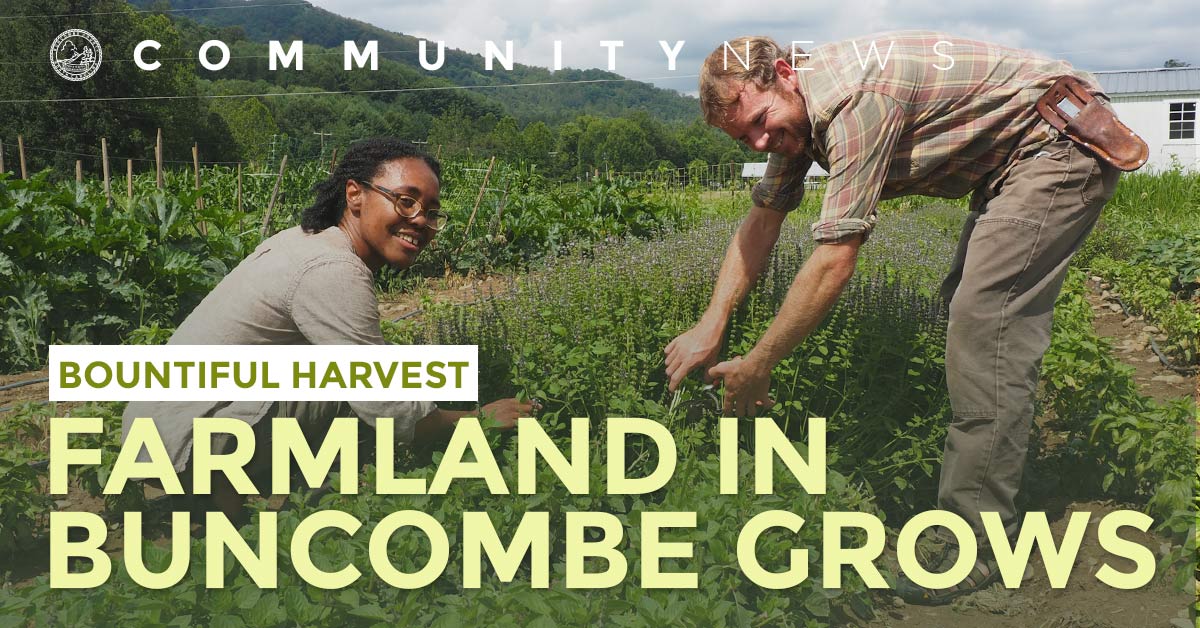This news item expired on Tuesday, March 17, 2020 so the information below could be outdated or incorrect.

Photo provided by Rayburn Farms.
As development in Buncombe County continues to surge, there’s also been an increase in farmland during a five-year stretch. From 2012-2017, there was a 1-percent increase. While that might not seem significant, it comes on the heels of years of losing farmland. “The demise of the tobacco program in 2004, along with the real estate boom, contributed to an increased rate of farmland loss until the recession slowed everything down,” notes County Cooperative Extension Director Steve Duckett. “New, small acreage producers and agrotourism operations are responsible for most of our growth in the last five years.”
In fact, Buncombe County now has more than 1,000 farms using more than 70,000 acres of land. And the yield from all of those operations generates more than $48 million of market value. So what’s behind the nascent comeback of increasing agriculture and livestock? Buncombe County has a rich history of supporting such ventures and continues to be a viable location for farming. “Access to a large population center that values local food is a big plus. We also have very fertile soil in the creek and river bottoms,” explains Steve. “Our abundant rainfall and generally mild climate is another plus. On the negative side, our steep slopes and small field sizes make growing high value crops and livestock the most viable enterprises. Livestock can use land that is only suitable for growing grass effectively, which makes them an important component of our farm systems.”
But beyond Buncombe County being a desirable location for farming, it’s an industry the County also benefits from. “One big advantage of farmland is preservation of the scenery that drives our tourism industry. Protecting our forests and water systems is another big factor,” notes Steve. “Also, farmland uses much less public resources than developed land, so this is healthy for the public bottom line. And, of course, farmland gives us access to local, healthy food.”
Naturally, with all of the farmland available you’re probably wondering how you can visit, support, and learn more about the County’s bountiful harvest of farmland. There’s a new, interactive Farm Heritage Trail map that lets you virtually visit and plan farm tours. Steve also suggest supporting tailgate and farmers markets, joining a CSA, and visiting the agrotourism farms. “Also, use your power at the ballot box to make sure farm programs and all programs that support natural resources are robust and well supported,” adds Steve.
Fun farm facts about Buncombe County:
Total number of farms: 1,073
Total amount of farm acreage: 72,284
Average size of farm: 67 acres
Percent of farms that are family run: 97%
Percent of farms with internet access: 78%
For more information about the demographics of farmers, most popular crops and livestock, and more check out the below PDF. You can also learn more about farmers markets, agrotourism, and more from Appalachian Sustainable Agriculture Project.
Buncombe County’s conservation efforts visit Soil & Water’s farmland preservation website here.
Table: News Item Documents
| File Name | Size | Type | Date & Time Added |
|
Farmland Facts
| 1 MB |
| 07/24/2019 10:49 AM |